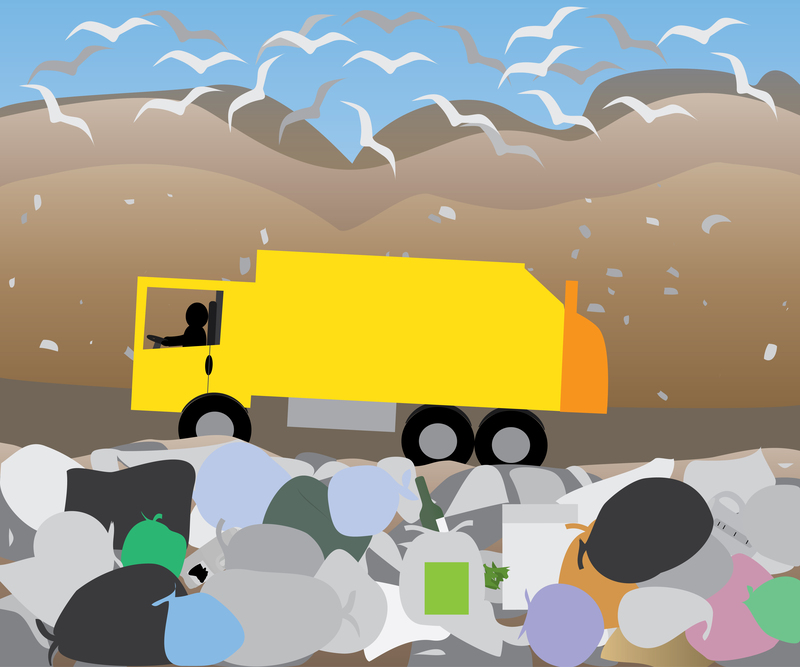Spend Less on Bulky Waste Items With These Proven Tips
Dealing with bulky waste removal can be a hassle--both for your time and your wallet. Old furniture, broken appliances, mattresses, garden debris... eventually, everyone faces the challenge of disposing of these large, awkward items. But there's good news: you don't have to break the bank when you're ready to get rid of them. In this guide, we'll cover the top strategies to spend less on bulky waste items and keep your disposal budget in check--without sacrificing convenience or the environment.
The High Cost of Bulky Waste: Why Frugal Disposal Matters
Many people are surprised by the expense of getting rid of oversized junk. Bulky item removal services from private companies can cost anywhere from $50 to $200 per item, depending on your location and the item's size or weight. Municipal bulk waste programs might offer free pickup, but slots are limited. Worse yet, illegal dumping is not a frugal solution--it can lead to hefty fines and environmental harm.
- Environmental impact: Bulky waste in landfills contributes to pollution and resource waste.
- Hidden fees: Some services charge extra for items like mattresses, electronics, or appliances with refrigerants.
- Time wasted: Hauling items yourself can be time-consuming and even require you to rent a truck.
That's why learning to reduce your bulky waste disposal costs is so important, both for your wallet and for the planet.

Proven Tips to Spend Less on Bulky Waste Disposal
Ready to overhaul your junk removal strategy? Here are the best ways to save money on bulky waste removal, supported by expert advice, community programs, and eco-friendly options.
1. Use Your Municipality's Bulky Waste Pickup Program
Most cities and towns offer some kind of curbside bulk trash pickup for residents. Here's how to make the most out of it:
- Check the schedule: Some municipalities offer monthly or seasonal pickups. Mark your calendar so you don't miss free collection dates.
- Know the limits: Many programs impose item or volume limits per pickup. Group items to maximize your allocation.
- Follow the rules: Ensure you're only setting out eligible items and following preparation guidelines to avoid extra fees or refused pickups.
Google Tip: Search '[your city] free bulky item collection' for local policies. These pickups are often the cheapest way to dispose of big items!
2. Donate, Sell, or Give Away Before You Pay
Why pay to throw away something someone else could use? Before paying for bulky waste disposal, try one of these approaches:
- Charities: Organizations like Habitat for Humanity, Goodwill, or local furniture banks often accept clean, usable items--and may even offer free pickup.
- Online Marketplaces: List your items on websites such as Craigslist, Facebook Marketplace, Freecycle, or Nextdoor. Even broken or worn items sometimes find eager DIYers.
- Curb Alerts: Place your item at the curb with a 'Free' sign. Many neighborhoods have active "curb alert" groups online.
Not only does this method save you money on bulky item disposal, but it also extends the item's life and benefits your community. It's a win-win solution!
3. Disassemble to Save Money and Hassle
Did you know that some items cost less to dispose of in pieces? Break down furniture, appliances, or playground equipment as much as possible.
- Smaller loads: By separating non-recyclable pieces from metals, glass, wood, or electronics, you might qualify for reduced rates or even access recycling rebates.
- DIY drop-off: Many recycling centers or transfer stations accept smaller items for free or for a much lower fee than for full-sized objects.
*Tip: Remove any hazardous components (like batteries or refrigerants) and check for special recycling programs for these parts.*
4. Leverage Community Clean-Up Days
Keep an ear out for community clean-up events. These are often sponsored by local governments, neighborhood associations, or environmental groups.
- Free bulk disposal: Events may feature special drop-off points for bulky waste, yard debris, electronics, and more.
- Group effort: Bring your neighbors and split transportation or disposal costs if fees apply.
- Hazardous waste: Some events also handle items that aren't typically accepted at curbside pickups.
Community disposal events can be the perfect answer to "how can I save money disposing of large waste near me?"
5. Share a Dumpster or Rental Truck
If you're planning a move, home renovation, or yard overhaul, renting a dumpster or trailer may make sense. To minimize the total cost of bulky waste disposal:
- Split with neighbors: Coordinate with others to fill the unit, then divide expenses.
- Choose the right size: Too big, and you pay extra; too small, and you may need another rental. Estimate volume carefully.
- Book during promotions: Many rental companies offer discounts in the off-season or for new customers.
Pro tip: Some services let you pay only for the space you use, instead of the full dumpster!
6. Recycle or Upcycle Bulky Items
Before you toss, ask yourself: Can I recycle or repurpose this item? Many cities have dedicated facilities for:
- Appliances: Remove hazardous components and drop off at an appliance recycler.
- Mattresses: Mattress recycling programs break down the materials and keep massive waste out of landfills.
- Metal and wood: Local scrap yards and construction recyclers may accept certain pieces for free or pay you per pound.
- Creative projects: Upcycling old furniture into garden planters, bookshelves, or art pieces is both frugal and fun.
Green disposal saves you money and helps create a circular economy!
How to Avoid Hidden Costs When Disposing of Bulky Items
Saving money isn't just about finding the cheapest haul-away. Be wary of hidden fees and legal issues related to large waste item disposal:
- Avoid fly-tipping fines: Illegal dumping can incur significant penalties in many areas. Always use authorized disposal methods.
- Know the difference: Special rules often apply for electronics, chemicals, construction debris, and items with freon or batteries.
- Read the fine print: Private junk removal or dumpster companies may add fuel surcharges, weight overages, or minimum trip charges.
Always clarify what's included when you get a quote, and double-check local regulations online--simply searching "bulky waste disposal rules in [your city]" can save you headaches and extra bills.
Frequently Asked Questions About Low-Cost Bulky Waste Disposal
What is considered a "bulky waste item"?
Bulky waste items typically include anything too large for standard household trash bins: couches, desks, mattresses, appliances, bathtubs, large toys, or renovation debris. Check with your local waste authority for a full list.
Is it free to dump bulky items at the landfill?
In some municipalities, residents get annual or seasonal free dump vouchers for bulky items. However, many landfills charge by item, weight, or load. Be sure to verify fees before you arrive.
How can I save money on old appliance removal?
- Ask your utility company about appliance recycling rebates--some will pick up your old fridge or washer for free and offer a cash incentive.
- Scrappers or recyclers may take working or repairable units for free (or even pay you).
Are there items I can't put out for bulky waste collection?
Yes. Many city programs exclude electronics, paint, tires, certain construction materials, and hazardous waste. Research accepted items to avoid fines or rejected pickups.
Does it cost less to remove multiple bulky items at once?
Often, yes. Bulk removal fees are usually cheaper per item if you dispose of several items together vs. arranging many single-item pickups.

Summary: Save Money and the Environment With Smart Bulky Waste Strategies
Getting rid of oversized junk doesn't have to be expensive or harmful to the environment. To spend less on bulky waste items, use every tool available: scheduled city pickups, charitable donations, disassembly, community clean-up days, and strategic recycling.
- Act early: Plan your disposal in advance to take advantage of free or low-cost options.
- Ask around: Neighbors, charities, and online groups are resources for free or shared bulk disposal.
- Prioritize eco-friendly choices: Donate, recycle, or upcycle whenever possible.
- Stay legal: Never risk fines or penalties by dumping illegally or ignoring hazardous material regulations.
By following these proven bulky item disposal tips, you'll keep your hard-earned cash in your pocket, help your community, and tread more lightly on the planet.
Quick Reference Checklist: The Best Ways to Save on Bulky Waste Removal
- Schedule city bulk trash pickup days
- Donate or give away before tossing
- Disassemble items for easier (sometimes free) drop-offs
- Watch for community disposal events
- Share dumpsters or trucks with others
- Recycle or upcycle when possible
- Be aware of fees and local rules
If you found this article on how to spend less on bulky waste items helpful, consider sharing it with friends and neighbors facing a junk overload. Save money, reduce waste, and enjoy hassle-free clean-outs!
